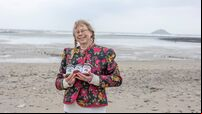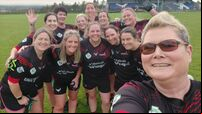Green Women: ‘I have not had a day where I haven't wanted to go to work'

Aimi is a strong advocate for working with nature.
Carving out a living from the land is something many of us dream of, but few have the courage, grit, and follow through to achieve.

“That’s a positive thing, you know. That’s being the change that you want to see. Being the solution rather than the problem.”







 App?
App?


